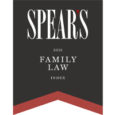11 Jul 2018
Learning from Johnny Depp’s ‘extraordinary’ spending
In some divorce cases, a spouse can deliberately waste money during the marriage or the divorce process in order to avoid it becoming part of a settlement. Sometimes this may be a malicious or spiteful act: giving lavish gifts to a new partner can be particularly hurtful. Few women would be unmoved by their husband buying a large diamond or an expensive sports car for a new girlfriend.
As a general rule, excessive expenditure is difficult to prove and the money is hard to claw back. For the court to take a claim seriously, there needs to be solid evidence that there has been wanton expenditure: intentionally getting rid of money with the primary purpose of preventing you from receiving a share of it. For example, the court can undo gifts to children or other family members by setting these transactions aside. Likewise, donations made by the wealthier spouse to causes which benefit themselves can be added back into the money available for the other spouse.
The case of John Christopher Depp II, better known as Johnny Depp, and his divorce from Amber Heard is on an altogether different level. The celebrity couple married in Los Angeles on February 3, 2015. The marriage would not last long: Heard filed for divorce from Depp on May 23, 2016. Their fifteen months together was characterised by expenditure on an extraordinary scale.
In a recent interview, Depp revealed the details during three days spent with a Rolling Stone journalist. This followed news that The Management Group (TMG), his former business advisers, were suing the actor for more than $25 million. Depp, who is estimated to have earned more than $650 million from his 30-year film career, boasted that he had spent almost all of it. According to RMG, his ‘ultra-extravagant lifestyle’ typically cost ‘in excess of $2 million a month to maintain, which he simply could not afford’.
Depp’s alleged extravagances included spending $75 million on 14 residences, $3 million on launching the ashes of his drug-taking partner Hunter S Thompson into space, 200 pieces of art, 45 luxury cars, 70 guitars, $200,000 a month on private air travel and $30,000 a month on wine. But Depp told Rolling Stone: ‘It’s insulting to say that I spent $30,000 on wine, because it was far more.’
The marriage between Depp and Heard ended in January 2017, after they had reached an initial settlement in August 2016, only weeks after separating. Depp retained sole possession of numerous properties including his private island in the Bahamas, as well as his collection of vintage cars and motorcycles. Heard, meanwhile, maintained custody of her dogs Pistol and Boo. Because she is wealthy in her own right, Depp’s extravagant expenditure was not a feature in the divorce settlement: when Depp agreed to pay Heard $7 million, she pledged to give the money to two charities. The only dispute between the lawyers was whether Depp should pay it directly to the charities or not.
There are plenty of examples in English divorce proceedings where extravagance is relevant. One recent case involved a husband’s personal ‘demons’: a serious cocaine habit which he acknowledged had ‘badly affected his family’. His wife also alleged that he had spent enormous sums on prostitutes: approaching £250,000 a year which she claimed as his overall ‘unnecessary expenditure’. The judge carefully analysed the husband’s expenditure to determine if it was ‘sufficiently wanton’ to justify what is called an add back: where a court adds back into the combined matrimonial pot of money which one party has used or spent thereby reducing the matrimonial assets.
Despite the scale of spending, the judge found that although the husband had undoubtedly been wasteful, he had not deliberately or wantonly intended to fritter away the couple’s joint assets. The judge pointed to other money spent by the husband on expensive gifts for his wife, which would also not be the subject of an add back. He concluded that the wife had to accept her husband’s shortcomings and would ‘have to take your spouse as you found him or her.’
For most people, extravagance on the scale of Depp or the man who spent £250,000 a year on prostitutes may seem incomprehensible. But as F. Scott Fitzgerald wrote: ‘Let me tell you about the very rich. They are different from you and me.’
Alex Carruthers, Partner
This article was published in Spear’s and is an extract from Hughes Fowler Carruthers’ Expert Guide to Divorce & Money











